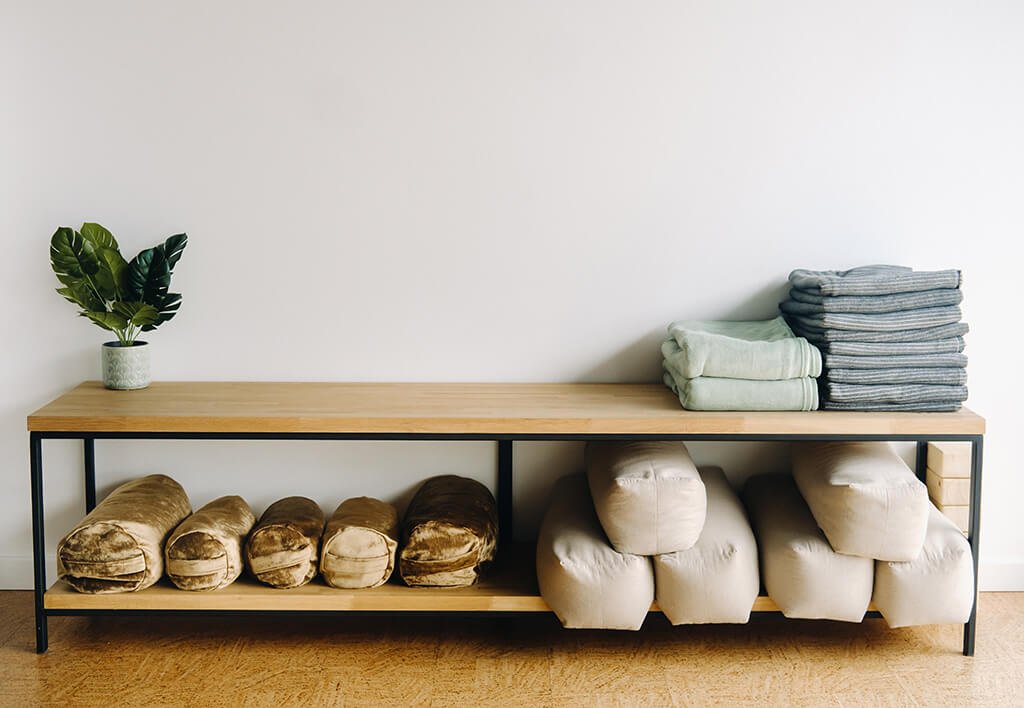Zukin Realty has many West Chester University off campus student housing options, some with 3,4,5, or 6 students living together. Living in a shared space apartment can be both convenient and challenging. While shared space apartments offer affordability and flexibility, the limited space often leads to clutter. Organization is essential for maintaining harmony among roommates. When everyone has a clear sense of where belongings belong, conflicts over shared areas are minimized. Start by identifying which areas are common and which remain personal. For example, the kitchen, living room, and bathrooms are shared, while bedrooms are private. Clearly defining these areas establishes boundaries and prevents confusion.
Implement Smart Storage Solutions
Storage solutions play a crucial role in keeping a shared apartment space organized. Vertical storage, like wall-mounted shelves, helps maximize floor space. Use labeled bins to separate personal and shared items. Furniture that doubles as storage, such as ottomans with hidden compartments or beds with drawers, helps reduce visible clutter. Even small apartments benefit from multi-purpose storage solutions. For example, a bench with storage under the seat can serve as a seating area and a place to store shoes, blankets, or seasonal items.

Establish House Rules for Cleanliness
Communication is key in any shared space apartment. Establish clear house rules regarding cleaning and organization. A weekly cleaning schedule that rotates responsibilities ensures that all areas are maintained equally. Encourage roommates to clean up after themselves immediately rather than leaving chores for later. Discuss expectations openly, including how to handle dishes, laundry, and shared surfaces. Setting clear rules reduces tension and ensures everyone takes responsibility for maintaining a tidy environment.
Maximize the Use of Multi-Purpose Areas
In shared space apartments, flexibility is essential. Multi-purpose areas enable roommates to maximize the use of limited space. For instance, the living room can function as a study area or an entertainment zone, provided items are cleared after use. Similarly, a dining table can double as a workspace. By designating adaptable spaces, roommates can share common areas without feeling crowded or disorganized.
Develop Consistent Daily Habits
Daily routines help maintain organization without requiring excessive effort. Encourage roommates to spend a few minutes each day tidying up, returning items to their proper places, and clearing counters or tables. Even small actions, such as wiping down surfaces or organizing cluttered shelves, prevent messes from accumulating. Over time, these habits foster a culture of responsibility, making living in a shared apartment space far more enjoyable.

Benefits of an Organized Shared Space Apartment
An organized shared space apartment offers numerous advantages. First, it reduces stress by providing a clean and visually pleasing environment. Second, it fosters better communication between roommates, as everyone understands their shared responsibilities. Third, it makes the apartment feel larger and more comfortable, even when space is limited. Lastly, maintaining organization protects valuable items from damage or loss, allowing everyone to enjoy their home fully.
Living harmoniously in a shared apartment space requires planning, effective communication, and a commitment to collaboration. By implementing innovative storage solutions, establishing clear house rules, making spaces multi-functional, and developing daily habits, roommates can maintain a tidy environment that benefits everyone. With these strategies, a shared space apartment can be both functional and welcoming, transforming even the smallest living quarters into a comfortable, organized home.




